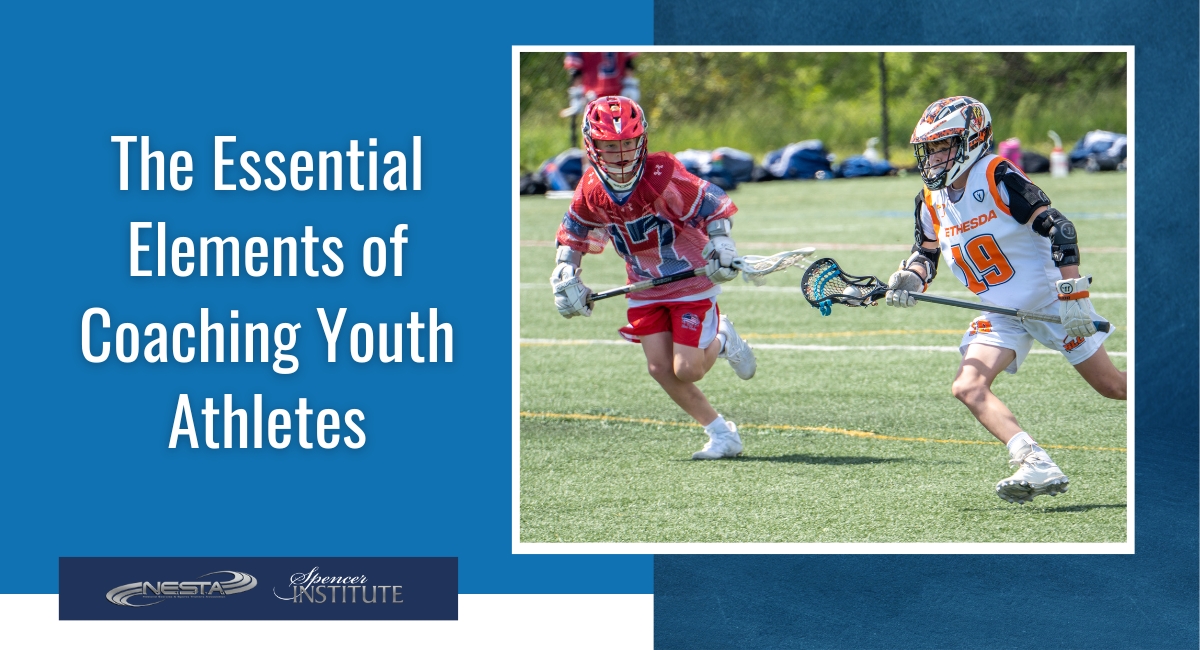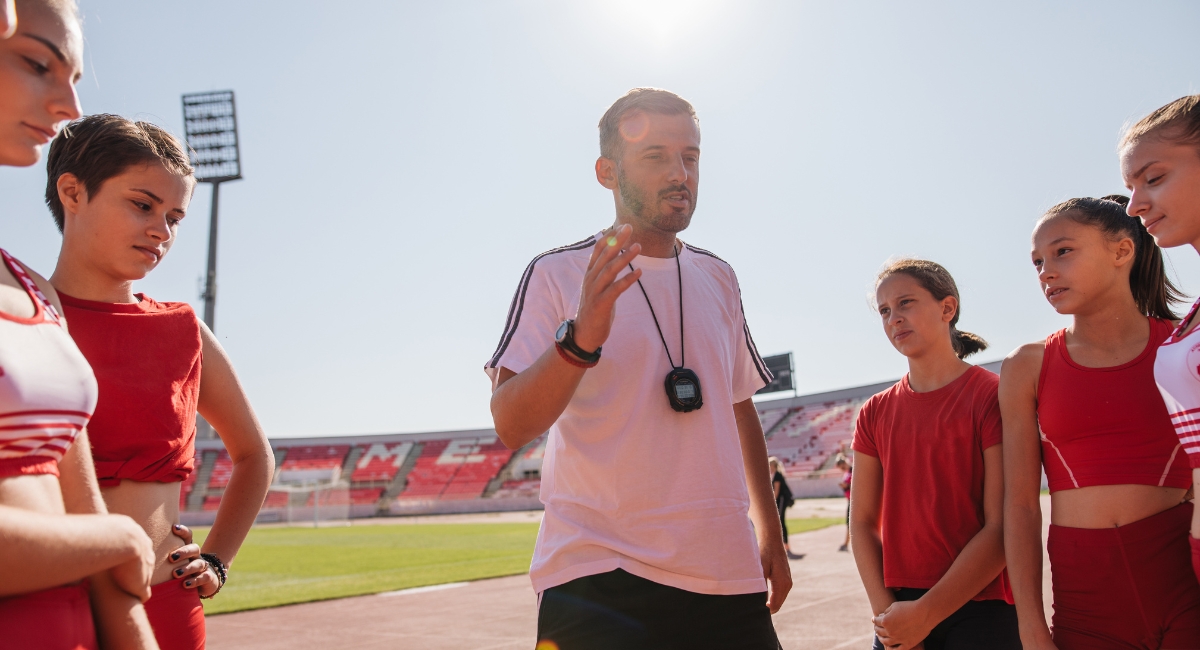
What is the Ultimate Key to Effective Youth Sports Coaching?
Sports and fitness from a young age can be the essential foundation for a rewarding and fulfilling life, and coaching youth athletes is a noble and rewarding endeavor. It is an opportunity to positively impact the lives of young people, teach valuable skills, and promote healthy habits. However, it is not without its challenges.
What Makes a Good Youth Sports Coach?
Of all the individuals who have an impact on a young athlete’s development, perhaps none is more influential than their coach. A great coach can inspire and motivate their team to reach new heights, while a poor coach can demoralize and discourage even the most talented players. Coaching young athletes requires a combination of skills, from communication to leadership to strategic planning. In this article, we will explore the various aspects of successful coaching in youth sports, providing insights and practical tips for coaches who want to make a positive impact on their team.
To master these critical skills, we developed the Spencer Institute Youth Performance Coach Certification. If you are serious about help young people improve sports performance, team sports cohesion, and learn valuable life skills, you will want to review this professional training course.
Many youth coaches also invest in the (SAQ) Speed, Agility and Quickness Specialist Certification because so many sports activities require these specific skills.
Effective Communication with Youth Athletes
Effective communication is essential in coaching youth athletes. Coaches must be able to clearly communicate expectations, goals, and strategies to their athletes. They must also be able to provide constructive feedback, both positive and negative, in a way that is easily understood and encourages improvement. Depending on the age level and maturity of the athlete, various strategies may need to be implemented to get the desired outcome.
One effective communication strategy is to use positive reinforcement. This means praising athletes for their accomplishments and effort, rather than solely focusing on their mistakes. By doing so, athletes are more likely to be motivated to continue working hard and improving.
Another important aspect of effective communication is to actively listen to athletes. Coaches must be able to understand their athletes’ perspectives and concerns and address them appropriately. This helps to establish trust between the coach and athlete and creates a positive environment for learning and growth.
Sportsmanship
Sportsmanship is an important aspect of coaching youth athletes. Coaches must prioritize fair play, respect for opponents, and a positive attitude. This not only promotes a positive environment for athletes but also teaches valuable life skills.
One way to promote sportsmanship is to model it. Coaches should demonstrate fair play and respect for opponents during games and practices and encourage their athletes to do the same. Additionally, coaches can teach athletes how to handle both victory and defeat gracefully, and how to congratulate opponents on their accomplishments.

Injury Prevention
Injury prevention is crucial in coaching youth athletes. Coaches must take steps to ensure the safety of their athletes during games and practices. This includes proper warm-up and cool-down routines, monitoring for signs of injury, and teaching proper technique.
One important aspect of injury prevention is to educate athletes on the importance of hydration. Dehydration can lead to heat exhaustion and other health issues, so it is important for athletes to drink enough water and other fluids before, during, and after practices and games. Additionally, coaches should be aware of the signs of heat exhaustion and take steps to prevent it, such as scheduling practices during cooler times of day and providing shaded areas for athletes to rest.
Here’s an additional lesson on common sports injuries coaches will want to understand.
Maintaining Focus and Attention
Maintaining focus and attention is a challenge when coaching youth athletes. Young athletes may have short attention spans and may be easily distracted. Coaches must take steps to keep athletes engaged and focused during practices and games.
One effective strategy is to vary the activities and drills during practices. This keeps athletes engaged and prevents boredom. Additionally, coaches can use positive reinforcement to motivate athletes and keep them focused on the task at hand.
Pre-Competition Mental Preparation
Pre-competition mental preparation is important in coaching youth athletes. Athletes may experience anxiety and nervousness before games, which can negatively impact their performance. Coaches must help their athletes prepare mentally for competition.
One effective strategy is to teach athletes relaxation techniques, such as deep breathing and visualization. This helps to calm nerves and focus the mind. Additionally, coaches can help athletes develop pre-game routines to help them mentally prepare for competition. This routine can include activities such as stretching, visualization, and positive self-talk.
Teaching Sport Skills Effectively in a Positive Sports Environment
Teaching sports skills effectively is important in coaching youth athletes. Coaches must use positive reinforcement and create a positive sports environment to promote learning and growth.
One effective strategy is to break down skills into smaller, manageable parts. This helps athletes understand the fundamental movements and techniques necessary to perform the skill correctly. Coaches can also use demonstrations and visual aids to help athletes visualize the skill and understand how it should be performed.
Understanding the Needs of Participants at Different Ages
Understanding the needs of participants at different ages is important in coaching youth athletes. Young athletes have different developmental needs and abilities, and coaches must adapt their coaching strategies accordingly.
For example, younger athletes may have shorter attention spans and may require more frequent breaks and varied activities to stay engaged. Older athletes may require more challenging drills and strategies to continue to improve their skills. Additionally, coaches must be aware of the physical and emotional limitations of their athletes and adjust practices and games accordingly.
Where Can You Learn More?
Effective coaching in youth sports requires a holistic approach that takes into account the physical, emotional, and psychological needs of young athletes. By incorporating the various aspects of successful coaching, coaches can help their team develop not just as athletes but also as individuals.
If this topic interests you, you will want to check out these other articles:
- Working with Youth Sports Parents and Athletes
- Benefits of Playing Youth Sports for All Ages
- The Relationship Between Personality and Sports
If you are passionate about coaching and want to take your skills to the next level, we encourage you to consider becoming a Certified Youth Performance Coach. With the right training and expertise, you can have a positive impact on the lives of young athletes and help them achieve their full potential both on and off the field. So why not take the first step today and start exploring the opportunities available to you when you become a Spencer Institute or NESTA certified coach or trainer?










